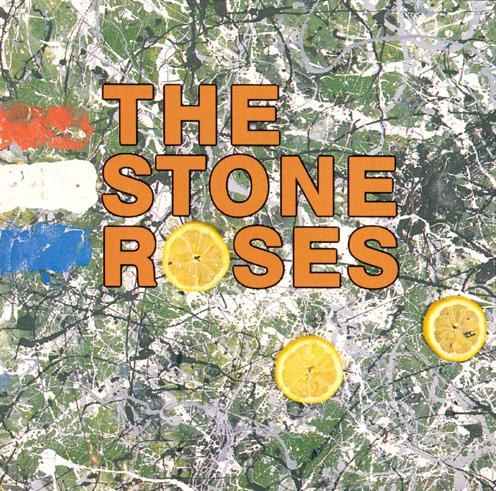The Stone Roses : The Stone Roses

The “Madchester” scene of the late ’80s and early ’90s, practically invented by The Stone Roses, had its fair share of success stories, unfulfilled promise, tragic endings and manic behavior in excess and no band exhibited all of these aspects like the aforementioned band did. The Stone Roses combined the ’60s-style psychedelic pop of their predecessors, such as Echo & the Bunnymen and the Jesus & Mary Chain, with the dance and rave culture of the time. Their landmark debut album, unlike anything of its time, spawned an entire generation plus of imitators and followers, making it somewhat the godfather of Britpop. Recently, an NME poll had the debut self-titled album from the Stones Roses named as the best British album of all time, beating out the Smiths’ The Queen is Dead and Stone Roses worshippers Oasis’ Definitely Maybe. With such acclaim surrounding one album, how is it that The Stone Roses’ star fizzled so quickly?
Imagine you’ve just been introduced to the music of The Stone Roses. You hear the inspired retro guitars of John Squire, the very British, but laid back style of singer Ian Brown, and the head-bob inducing bass and drums of Reni and Mani. You like it, seeing as some of the songs are proto-Britpop, some are pure late ’60s Beatles-psychedelia, and some are the accented Albion aggression of the Stones, but all have an infectious dance beat and a sense of whimsy. You head into your local record store to find material by the band. What you end up seeing are over twice as many compilations of The Stone Roses’ music than original albums. Huh? How did this happen? It’s all part of a story that is perhaps only rivaled by the story of another band becoming popular at the time, the Happy Mondays. The Roses were more guitar-centric than the more dance oriented Mondays, but both dominated the airwaves and clubs in Manchester. But rather than drugs, the Stone Roses were undone by the music industry and quickly changing tastes.
The Stone Roses was released to critical and fan acclaim in 1989, spawning hit club singles and birthing a new genre. Songs such as the understated menace of “I Wanna Be Adored,” the funky and jangly “Elephant Stone,” and as a bonus track, the incredible nearly ten minute dance opus “Fools Gold” made sure that the album was a brilliant breakthrough. But a dispute with original label Silvertone led to a long delayed sophomore effort, Second Coming, finally being released five years after the debut, which was a lifetime later in terms of the Madchester scene. While it wasn’t a flop, it also wasn’t a hit, merely too little too late. Squire left the band, which eventually led to its dissolution. It just couldn’t soldier on without one of its founding members. Each member has gone on to other projects, with Brown maintaining the biggest profile with his series of solo albums. To this day, even with the label of Best British Album of All Time under its belt, the Stone Roses are considered the unlikeliest of bands to reunite.
In a way, minus the recluse status, the Stone Roses are somewhat the J.D. Salinger of Britpop. Salinger had a number of acclaimed short stories, just as Stone Roses had a few noteworthy singles, before both hit it big with their defining full-length debuts. The Catcher in the Rye was Salinger’s first novel, probably not his last, but the only one to be published in his lifetime, revolving around the troubled youth of Holden Caulfield. The Stone Roses was practically a manifesto for the youth culture of Manchester, not the last record to be made by the group, but the last in most fans’ hearts. The music of the Stone Roses, especially in that first album, is mythic; surely living up to the hype that still surrounds it. Although the starting point for a genre, or at least a catalyst of change between one genre and another, its sound is nearly timeless. Just as The Catcher in the Rye is required reading for high schoolers, so should The Stone Roses be required listening.
Label: Silvertone
Year: 1989
Similar Albums:
The Stone Roses : The Stone Roses
Note: When you buy something through our affiliate links, Treble receives a commission. All albums we cover are chosen by our editors and contributors.




